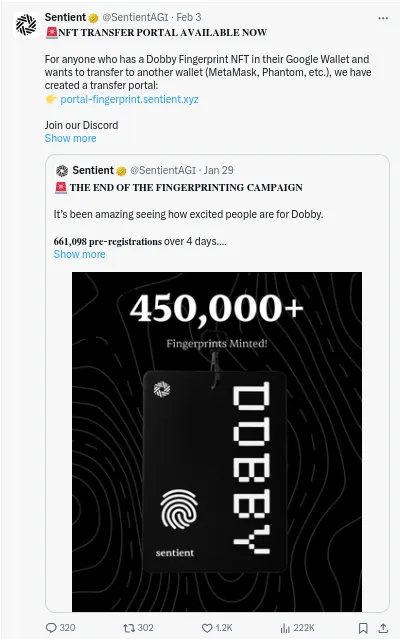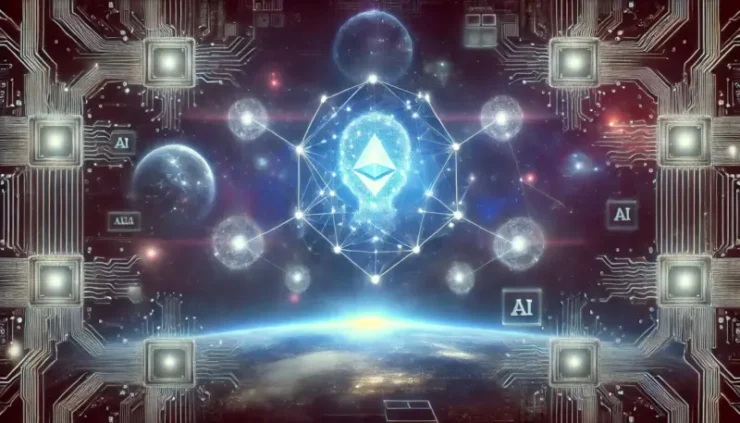Sentient has completed one of the largest non-fungible token (NFT) minting campaigns in cryptocurrency history, with over 650,000 participants securing fractional ownership of its decentralized artificial intelligence (AI) model, Dobby.
The record-breaking event underscores the growing demand for decentralized AI governance and challenges the conventional, centralized approach to AI development.
Community-Controlled AI: A Paradigm Shift
The NFT minting initiative revolved around “Fingerprints,” unique digital assets that grant holders partial ownership and access to Dobby. Unlike traditional AI models controlled by corporate entities, Sentient’s approach aims to distribute governance among a global community. To participate, investors had to prove their humanity by passing a randomized IQ test, ensuring that real individuals—not bots—were involved in shaping the future of AI.
Polygon founder and Sentient core contributor Sandeep Nailwal emphasized the importance of community ownership, stating, “When AGI or ASI emerges, it should be community-controlled and community-owned to guarantee its loyalty. Sentient’s fingerprinting mechanism allows communities to enforce ownership, control, and alignment of open-source AI models.” This model of AI governance, Nailwal asserts, incentivizes collective contributions to high-quality open-source development, countering the monopolization of artificial general intelligence (AGI) by large corporations.

Sentient’s fingerprinting technology also serves as a safeguard against AI misappropriation. By embedding query-response pairs directly into the AI, the mechanism enables verification of model integrity, preventing unauthorized modifications or misuse. This tamper-resistant design represents a crucial step toward ensuring transparency and accountability in AI evolution.
AI Democratization Amidst Industry Disruptions
The success of the Fingerprints mint follows the launch of DeepSeek, an AI-powered chatbot built on a modest $5.6 million budget—significantly lower than the estimated $100 million it took OpenAI to develop ChatGPT. DeepSeek’s efficiency and accessibility, with the ability to run on smartphones, have fueled investor interest in decentralized AI models and disrupted traditional AI stock and token markets.
Dobby’s decentralized nature addresses fundamental challenges in the AI industry. Unlike centralized AI models, which remain under the control of private companies, Dobby operates on an open-source framework where the community dictates its development and ethical guidelines. Himanshu Tyagi, co-founder of Sentient, highlighted this distinction: “Dobby distinguishes itself through what we call ‘loyalty’—a combination of ownership, alignment, and control. The model’s ownership is placed directly in the hands of the community, who collectively govern its development trajectory.”
The minting event also coincided with broader industry movements. Just a day prior, the 0G Foundation launched an $88 million ecosystem fund to accelerate AI-powered decentralized finance (DeFi) applications and autonomous agents. This surge in funding and participation reflects the rising momentum behind AI decentralization.





